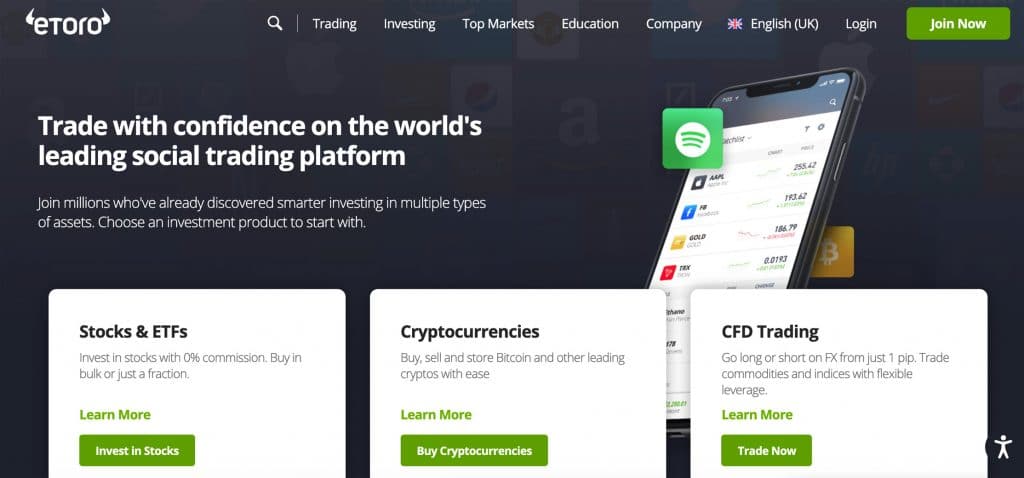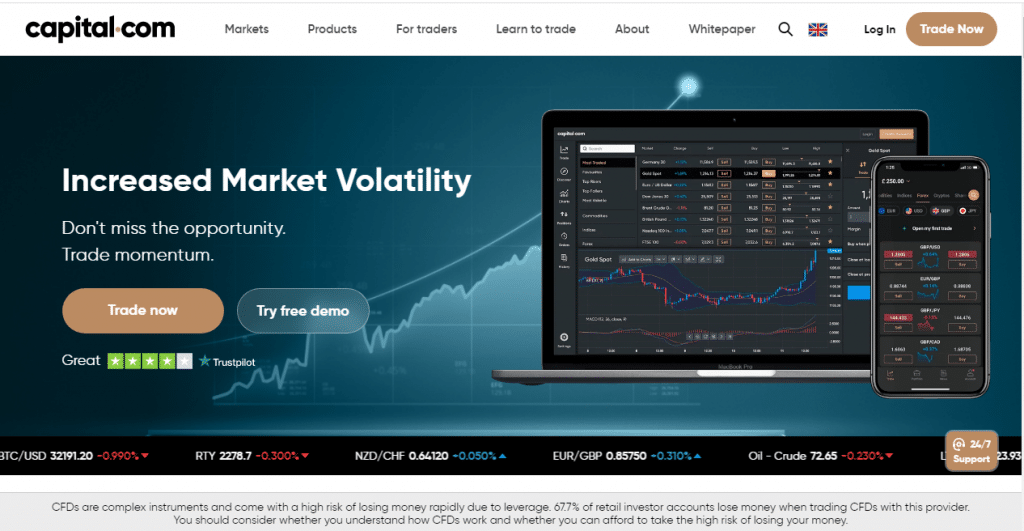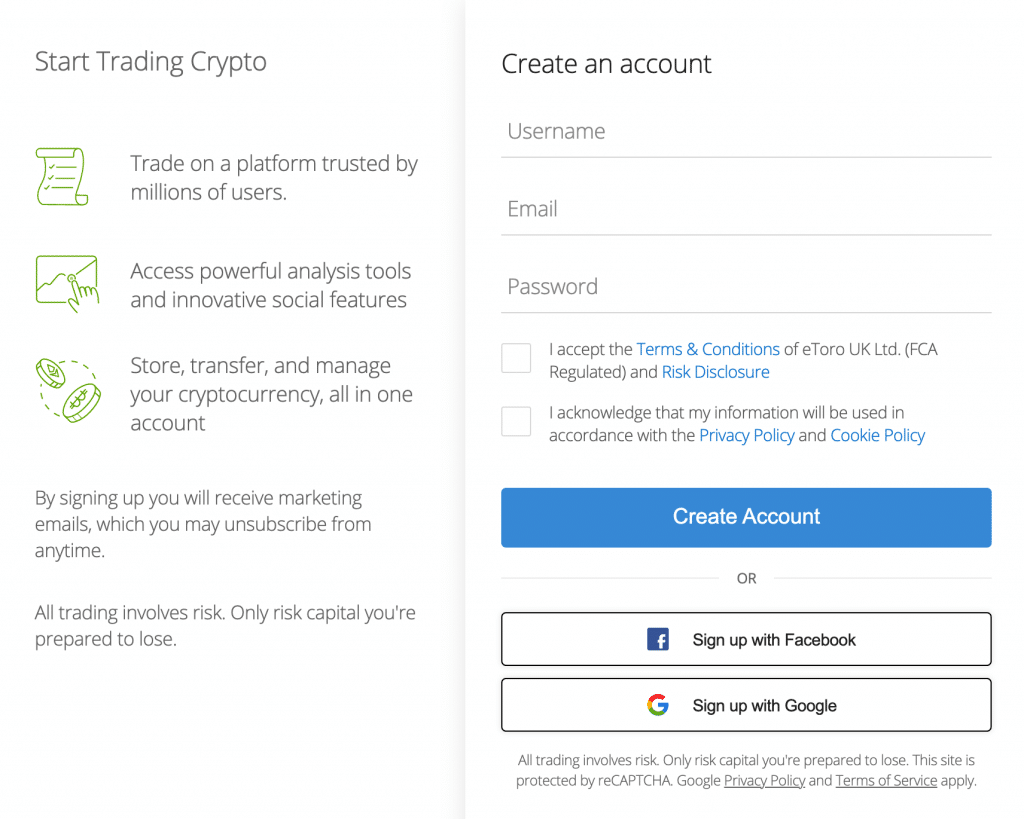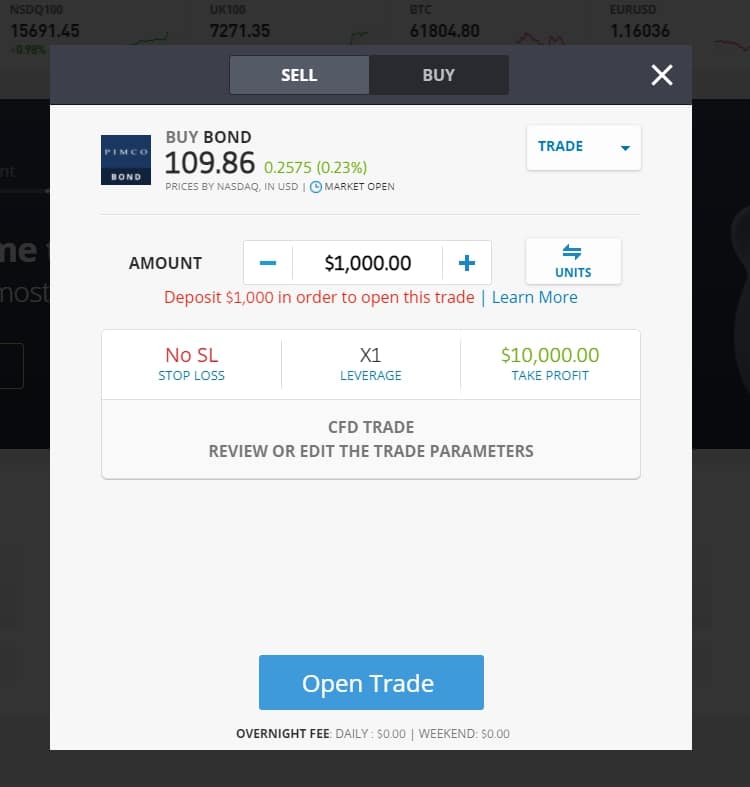How To Invest In Bonds Australia – Investing in Bonds For Beginners 2021
Please note that we are not authorised to provide any investment advice. The content on this page is for information purposes only.
Please note that we are not authorised to provide any investment advice. The content on this page is for information purposes only.
Investors are constantly looking for ways to minimize risk while still earning solid returns. While a zero-risk investment is something that only exists in fantasy, bonds are often regarded as currently being one of the safest investments. There are plenty of different types of bonds available to investors, and as such, it pays to do your research to ensure a certain bond is right for you. While this can be an arduous task for many, we’ve made sure to boil down all the key points and present them in a clear, concise manner.
Throughout this guide, we’ll be covering the best bond brokerages, some different types of bonds, and exactly how you can start investing in bonds today. Once you’ve read this article you should be armed with all the knowledge you need to have a successful start to your career as an investor.
Table of Contents
One of the most commonly overlooked steps to investing in bonds is making sure you select a reputable and high-quality brokerage. If you fail to do your due diligence on this step, it could come back to severely bite you later on down the line.
Before you can start investing, you’ll need to ensure that you’ve registered with a trusted brokerage. Unfortunately, there’s a massive amount of contradictory information on the interest these days, so to make the selection process a little bit easier for our readers we’ve included full-length reviews on the top 3 bond brokers.

One of the world’s best-known bond brokerages, eToro has grown to serve over 20 million users since its launch in 2007. They’ve achieved this huge growth by offering investors an excellent platform that fits the needs of the vast majority. Overall, we have to say, eToro is the most well-rounded platform you can use to invest in bonds on our list and if you’re unsure on which broker is best for you, eToro is likely a safe bet.
Regardless of how big a brokerage is, I think 99% of investors will agree security is one of, if not, the most important factors when selecting a platform to invest on. eToro seems to understand this as they’ve made sure to implement several key preventative security measures. First of all, they’re regulated by ASIC (along with heaps of other authoritative bodies), which means that they are regularly audited, preventing them from engaging in illicit activities behind the scenes. To prevent your data from being intercepted while it makes its way to the central server, eToro has utilized SSL encryption to obscure your data before it leaves your device. Additionally, eToro provides its users with the option of enabling 2-factor authentication, a security measure that requires you to input a code sent to your mobile before completing any sensitive account actions.
It would be extremely difficult to amass over 20 million users without providing them with a solid investment platform. Therefore, it’s no surprise that eToro is packed full of useful features. Beginners can benefit from eToro’s proprietary CopyPortfolios that provide investors an incredibly easy way to invest in multiple companies at once. It works similarly to an ETF, however, rather than investing in a fund, it’s more akin to opening a number of different positions at once. CopyTrading is another prosperity eToro feature designed to make the lives of investors better. It does this by allowing you to automatically mirror the trades of more experienced investors, providing you with a simple way of earning a passive income. On top of this, eToro also grants its users access to advanced charting tools, enabling you to plot even the most complex investment strategies. From this, it’s clear that eToro has made sure to include plenty of tools to help you invest in bonds.
| Fee Type | Fee Amount |
| Commision Fee | 0% |
| Deposit Fee | $0 |
| Withdrawal Fee | $5 |
| Inactivity Fee | $10 (Monthly, after 12 months inactivity) |
Pros
Cons
67% of retail investor accounts lose money when trading CFDs with this provider.
AvaTrade is the oldest bond brokerage we’ll be speaking about in the article, they’ve been operating since 2006 and in that time have managed to earn the trust of over 2 million investors. AvaTrade has taken the approach of forgoing any gimmicky features and instead relied on creating an extremely well-refined investment platform.

As the oldest platform on our list, it makes sense that AvaTrade has picked up some secrets when it comes to creating a secure investment platform. First of all, AvaTrade is also regulated by both the FCA and ASIC, preventing them from simply running away with client funds. To make sure that client data is unusable in the unlikely event of it being intercepted, AvaTrade has chosen to implement 256-bit SSL encryption. As I’m sure most will agree, identity documents and card information is the most sensitive information we have to part with when investing, so to make this process go smoothly AvaTrade has integrated something called McAfee Secure into their platform. This obscures card and identity documents, making it near-impossible for someone to get unlawful access to your data without compromising your account.
AvaTrade has done well to ensure that its users aren’t left wanting more out of the investment platform, they’ve covered all the main bases and even managed to add in some extra features. By creating a platform called “AvaTradeGo”, they’ve made sure that regardless of the device you like to trade on, you can use AvaTrade how it was intended. AvaTradeGo is a mobile trading platform that comes equipped with all the information you might need to make better-informed investment decisions. To help prevent investors from making an incorrect decision, AvaTrade has included a comprehensive series of video guides, explaining everything from the basics of trading to simple analysis, giving you all the resources you could need to invest in bonds. Combine this with AvaTrade’s highly responsive phone support team, and in our opinion, you have a recipe for success.
| Fee Type | Fee Amount |
| Commission Fee | 0% |
| Deposit Fee | $0 |
| Withdrawal Fee | $0 |
| Inactivity Fee | $50 after 3 months & $100 after 12 months |
Pros
Cons
Your Capital is at Risk.

We’ve just covered the oldest platform on our list, so it seems fitting that we now cover the youngest. Founded in 2016 Capital.com has since garnered over 1 million customers, bringing it into the major leagues. Despite lacking a track record as long as the other platforms we’ve discussed, Capital.com more than made up for it by providing users with a powerful and simple way of investing in bonds.
A security breach would be catastrophic for any investment platform, but particularly for one, that’s only been operating for a few years. So to prevent investor confidence from being shaken, Capital.com has implemented several industry-leading security measures. One such measure is following strict regulations laid out by ASIC, this prevents any misdeeds from occurring. As you may recall, intercepting your data on its way back to a central server is a method hackers use to obtain sensitive information. To prevent this, Captial.com has used a piece of technology named “Transport Layer Security”. As the name would imply, it protects your data while it makes its way back to a central server – it’s a more recent version of SSL encryption. In addition to this, customers are protected in the unlikely event of Capital.com going into insolvency by FDIC insurance. Although unlikely to be needed, this provides investors with extra peace of mind.
Capital.com is the perfect platform for those just beginning their trading journey, they’ve provided extensive educational material in the form of guides covering almost every topic a beginner may need to have a successful start. Additionally, Investmate is Capital.com’s proprietary trading app. It’s essentially a portable, more comprehensive version of the guides you’ll find on the website. Typically, a guide consists of a few short lessons, followed by a quiz for you to test your knowledge. Although it may seem like Capital.com specializes in catering to beginners, those with more experience certainly haven’t been forgotten about. Capital.com has full TradingView integration and supports a huge range of markets, meaning that regardless of your trading goals and strategies, you’re covered.
| Fee Type | Amount |
| Commission | 0% |
| Withdrawal Fee | $0 |
| Deposit Fee | $0 |
| Inactivity Fee | $0 |
Pros
Cons
76.72% of retail investor accounts lose money when trading spread bets and/or CFDs with this provider.
If you’re looking for an easy-to-reference comparison comparing the fee structure of our top bond brokers, then you’re in the right place! We’ve included this table to help you make a better-informed decision on which brokerage is right for you.
| Broker | Commission | Deposit Fee | Withdrawal Fee | Inactivity Fee |
| eToro | 0% | $0 | $0 | $10 monthly (after 12 months inactivity) |
| AvaTrade | 0% | $0 | $0 | $50 after 3 months, $100 after 12 months |
| Capital.com | 0% | $0 | $0 | $0 |
Although learning about bonds can be incredibly confusing, this is primarily due to the heaps of financial jargon that gets thrown in your direction when doing research. The reality is that when explained in simple terms, a bond is a simple concept to understand. Typically a bond is created as a way to raise funds for a government, city, or corporation. In short, a bond is essentially an official IOU, you invest in a bond, giving an organization funds and in return, they agree to pay those funds back to you in a predetermined time frame, usually with interest.
There are multiple different types of bonds available for you to invest in, so to help make your selection a bit easier, we’ve included a breakdown of the 3 most common types of bonds.
Sometimes a government will need to raise funds for a certain event, repair, or installation, so to help raise funds they can issue a treasury bond, also referred to as a government bond. Because a treasury bond is issued by a government, they’re typically regarded as being a fairly safe investment, after all, you wouldn’t expect a government to go against their own word. However, it’s important to bear in mind the strength of your bond is tied to the strength of a government. For example, a US treasury bond has greater strength than one from Mexico.
A municipal bond is similar to a treasury bond, with the main difference being instead of a government, they’re usually issued by a city or state. Because they’re issued by a city, the funds generated will typically be used to improve the quality of life for residents. This is often achieved by building a road, school, park, or any other project that could be deemed to be for the public.
As the name would imply, a corporate bond is typically issued by a corporation. Because you’re not dealing with an “official” body, a corporate bond is seen as a greater risk than a treasury or municipal bond. Because of this, a corporate bond is usually rated by an impartial company in order to help investors decide if a bond is worth the risk. These ratings usually range from AAA+ to DDD-, with the former being a sign of strength and the latter, weakness.
As we discussed, there are quite a few different types of bonds, and while on the surface they may seem similar, they’re not all created equally. Before you invest in a bond, you should make sure to do your due diligence and ensure an investment fits your requirements.
A bond is typically regarded as a fairly low-risk investment because they’re often backed by an official body or large corporation. Because a bond is essentially an IOU, you’re not directly tied to stock price, meaning you needn’t worry as much about how a company is performing. Due to this, a great deal of the risk associated with traditional investments is alleviated.
Investors usually don’t want to take on more risk than they have to and you can’t blame them, the greater the risk, the higher the chance you’ll lose money. For anyone wanting to invest without taking on much risk, it’s hard to beat a bond. Particularly a treasury, municipal, or AAA+ rated corporate bond.
Another interesting aspect of investing in a bond is the ability to earn interest on your investment. Because you don’t have to worry about a stock price decreasing, this interest works in a very similar way to the interest you incur on bank savings, although it’ll almost always be paid at a higher rate. Your interest is usually paid quarterly or yearly, however, although less common, some bonds also offer monthly payments.
No investment is completely risk-free, so although bonds are typically regarded as a low-risk investment, you still need to be aware of a few factors that could potentially cause issues further down the line.
This one goes without saying, if you invest in a bond issued by a corporation and that corporation goes into insolvency, you’ll be left out of pocket. I think we can all agree that this is a worst-case scenario and is fairly unlikely as long as you’re dealing with a large, highly rated company. You can also mitigate almost all of the risk of bankruptcy by investing in a treasury bond, this is because there’s almost 0 chance of a powerful government going bankrupt (as this would essentially mean a country is broke).
Bonds aren’t usually sold on an official market, therefore you may face some liquidity issues when trying to sell your bond. That being said, this will only prevent you from selling your investment quickly. Most well-rated bonds will still eventually sell.
At Economy Watch, we understand how difficult it can be to get set up on a new investment platform. Oftentimes you get heaps of jargon thrown at you, making it extremely easy to get overwhelmed, so to prevent that happening to our readers we’ve created this guide, explaining in simple terms exactly how you can make your first investment
Before you can make an investment, you’ll need to register with a reputable brokerage. We recommend eToro. Simply type “eToro.com” into your browser’s search bar, press “Join Now” and fill in the required information.

67% of retail investor accounts lose money when trading CFDs with this provider.
After signing up with eToro, you’ll need to verify your identity. This is because eToro is a regulated platform and has to comply with strict rules surrounding money laundering. Luckily, getting verified is easy, all you’ll have to provide is a photo ID (passport, driving license) and proof of address (bank statement, utility bill).

Now that your account is verified, you’re only one step away from investing. All that’s left to do is add funds to your account. To do this just click on the button marked “Deposit Funds”, enter the amount you plan on investing, and press “Deposit”. To ensure everyone has a smooth time investing eToro supports deposits using either a credit/debit card, bank transfer, or e-wallet (Skrill, PayPal).

Lastly, now that you’ve loaded your account with a source of funds, you’re ready to invest! Simply type the name of your chosen investment into the eToro search bar, press “Trade”, type in the amount you’d like to invest, and press “Open Trade”. Once you’ve done this you’ll be able to monitor your investment from the “Portfolio” section of your account.

To briefly summarize what we’ve discussed, a type of investment, a bond essentially acts as an IOU. Whoever issues the bond receives funding for a project and in turn, they agree to pay the receiver back after a predetermined amount of time with interest. Because both parties receive something they desire, investing in a bond is something of a win-win (as long as the issuer is reputable). However, it’s important to keep in mind that investing in bonds isn’t without risk, it’s important to ensure that whoever is issuing the bond isn’t likely to face any catastrophic issues before your bond matures. Another risky aspect of purchasing a bond is ensuring you make your investment with a reportable bond brokerage. If you’re unsure about which broker is right for you we recommend eToro because they offer an excellent blend of security, ease-of-use, and features, providing you with all the resources you need to succeed.